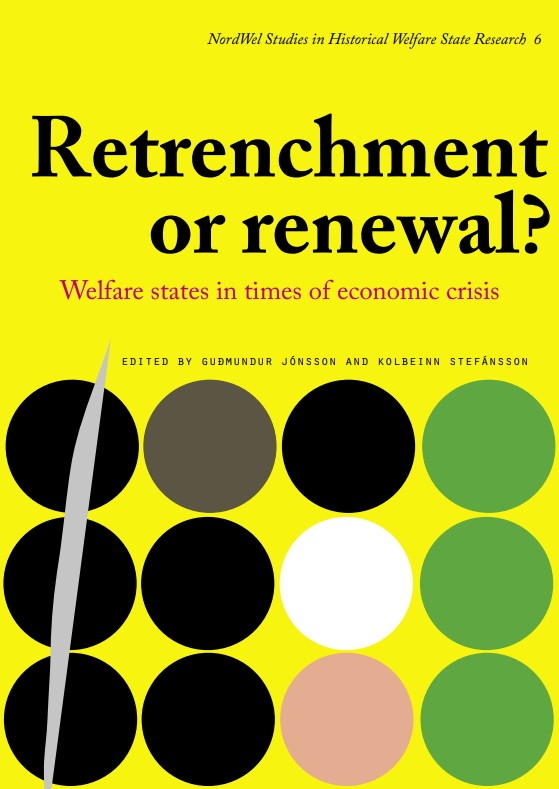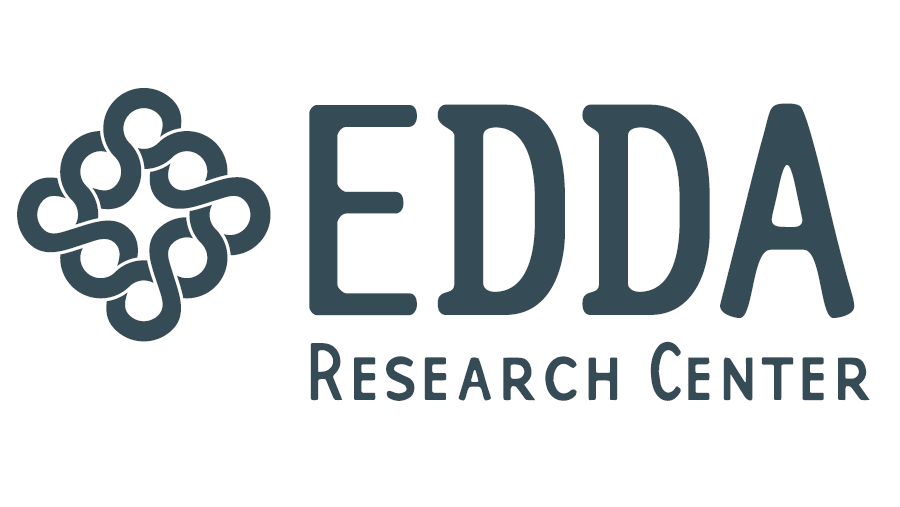Book publications in collaboration with the EDDA Research Center or by scholars affiliated with it.
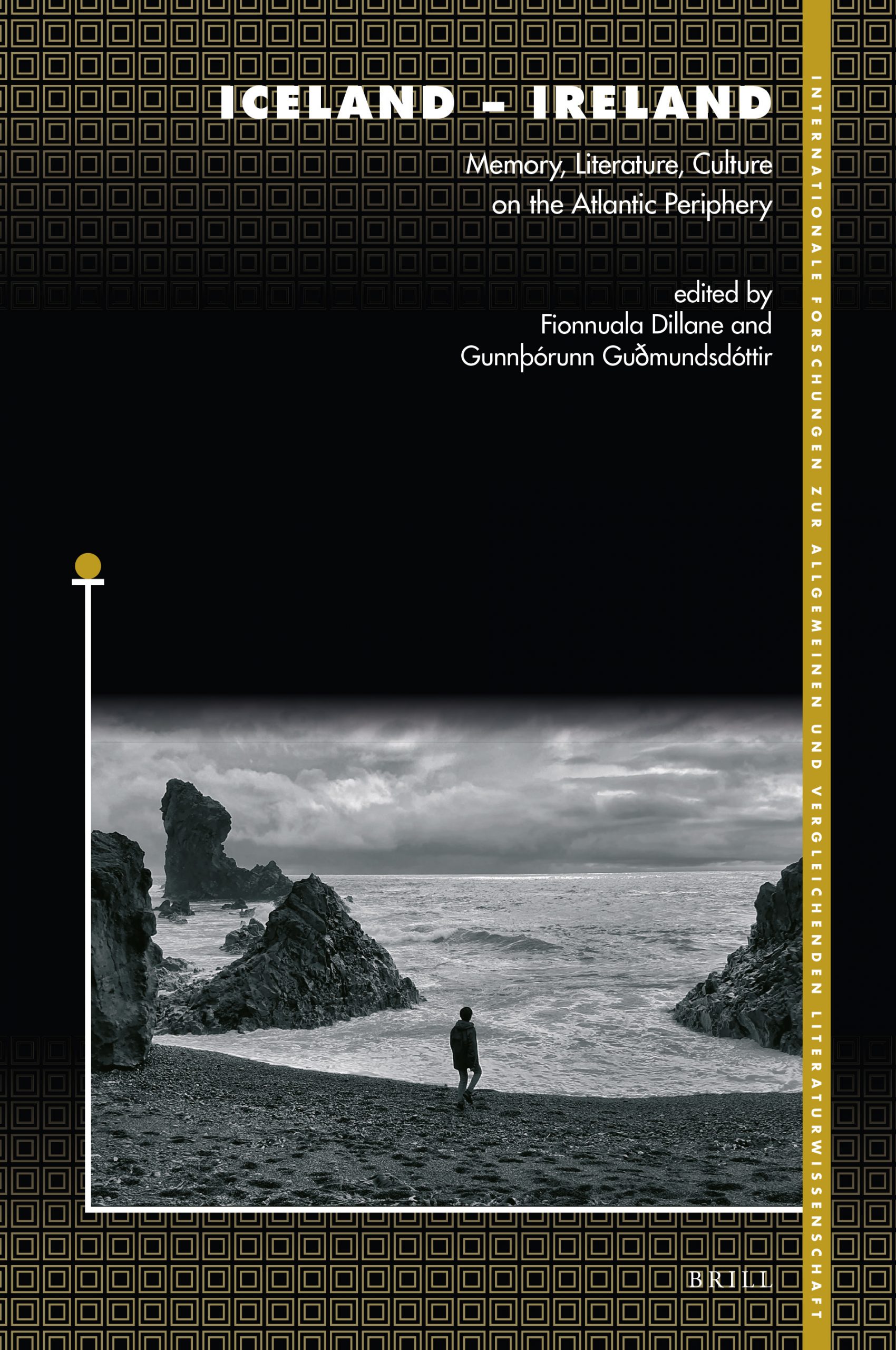
Iceland – Ireland
Memory, Literature, Culture on the Atlantic Periphery
Iceland – Ireland: Memory, Literature, Culture on the Atlantic Periphery has been published by Brill as the 209 volume of the series Internationale Forschungen zur Allgemeinen und Vergleichenden Literaturwissenschaft. The volume is edited by Gunnþórunn Guðmundsdóttir, Professor of Comparative Literature at the University of Iceland, and Fionnuala Dillane, Professor of Nineteenth-century Literature at University College Dublin. The volume received funding from EDDA Research Center.
Iceland and Ireland, two North-Atlantic islands on the periphery of Europe, share a long history that reaches back to the ninth century. Direct contact between the islands has ebbed and flowed like their shared Atlantic tides over the subsequent millennium, with long blanks and periods of apparently very little exchange, transit or contact. These relational and regularly ruptured histories, discontinuities and dispossessions are discussed here less to cover (again) the well-trodden ground of our national traditions. Rather, this volume productively illuminates how a variety of memory modes, expressed in trans-cultural productions and globalized genre forms, such as museums cultures, crime novels, the lyric poem, the medieval codex or historical fiction, operate in multi-directional ways as fluid transnational agents of change in and between the two islands. At the same time, there is an alertness to the ways in which physical, political and linguistic isolation and exposure have also made these islands places of forgetting.
Contributors are Fionnuala Dillane, Gunnþórunn Guðmundsdóttir, Sharae Deckard, Anne Fogarty, John Brannigan, Daisy Neijmann, Ásta Kristín Benediktsdóttir, Gísli Sigurðsson, Paul Rouse and Lucy Collins.
Further information about the book can be found on Brill’s webpage.
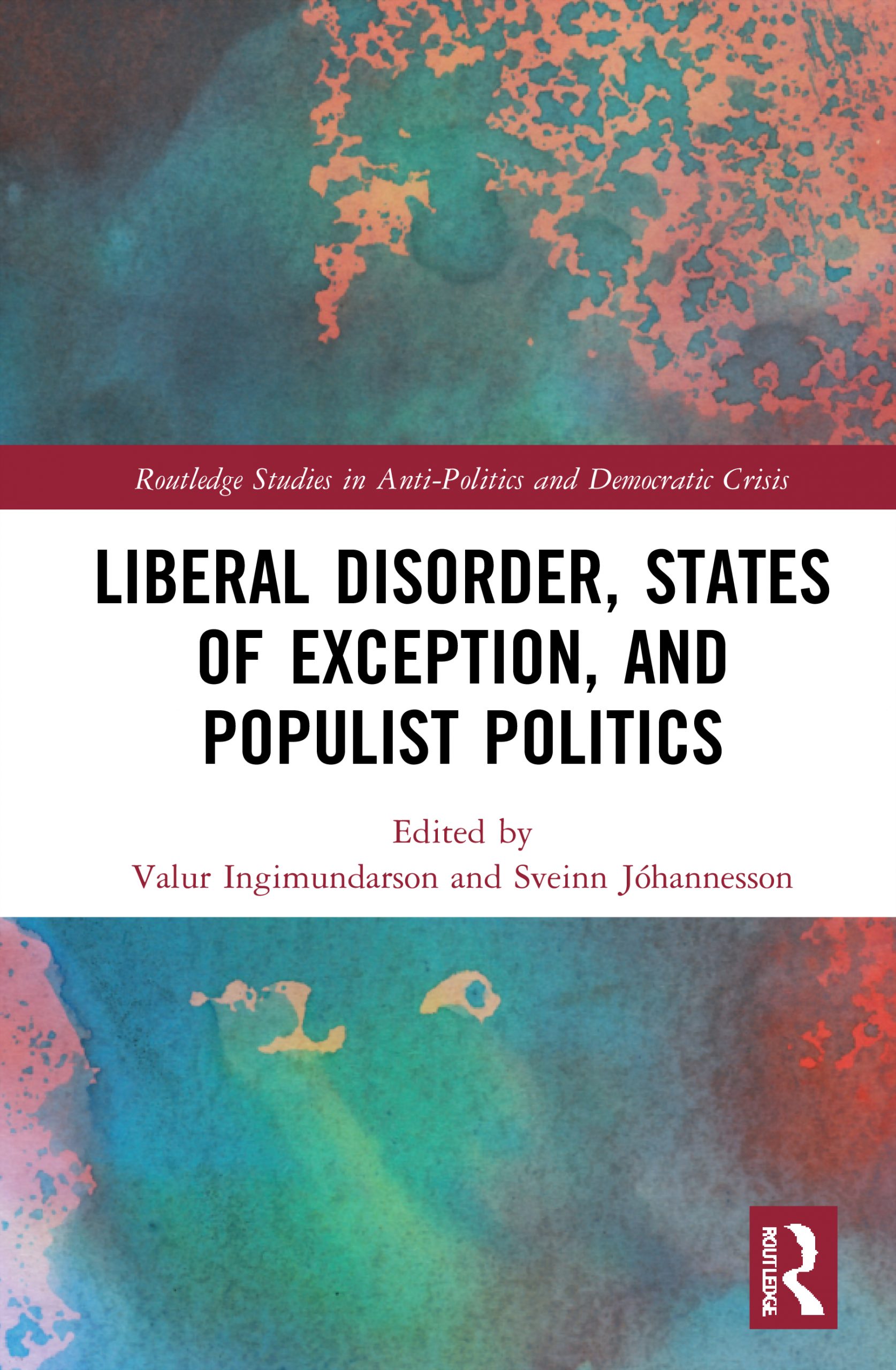
Liberal Disorder, States of Exception, and Populist Politics
Liberal Disorder, States of Exception, and Populist Politics has been published by Routledge. The book is edited by Valur Ingimundarson, University of Iceland and Chair of the EDDA Board, and Sveinn M. Jóhannesson, University of Edinburgh.
The edited volume focuses on the crosscutting causes and manifestations of the current crisis facing liberal democracies. Over the last decade, the liberal order has come under mounting pressure in many unanticipated ways. In response to seemingly endless crisis conditions, governments have turned with alarming frequency to extraordinary emergency powers derogating the rule of law and democratic processes. The shifting interconnections between new technologies and public power have raised questions about threats posed to democratic values and norms. Finally, the liberal order has been challenged by authoritarian and populist forces promoting anti- pluralist agendas. The contributions weave together historical studies and conceptual analyses of states of exception, emergency powers, and their links with technological innovations, as well as the tension-ridden relationship between populism and democracy and its theoretical, ideological, and practical implications.
Contributors are Hans Köchler, Sveinn M. Jóhannesson, Alexandra S. Moore, Jennifer N. Ross, Peter Hitchcock, Nadia Urbinati, Valur Ingimundarson, Jón Ólafsson, Juan Vincente Sola, and Gylfi Zoega.
Further information on the Routledge website.
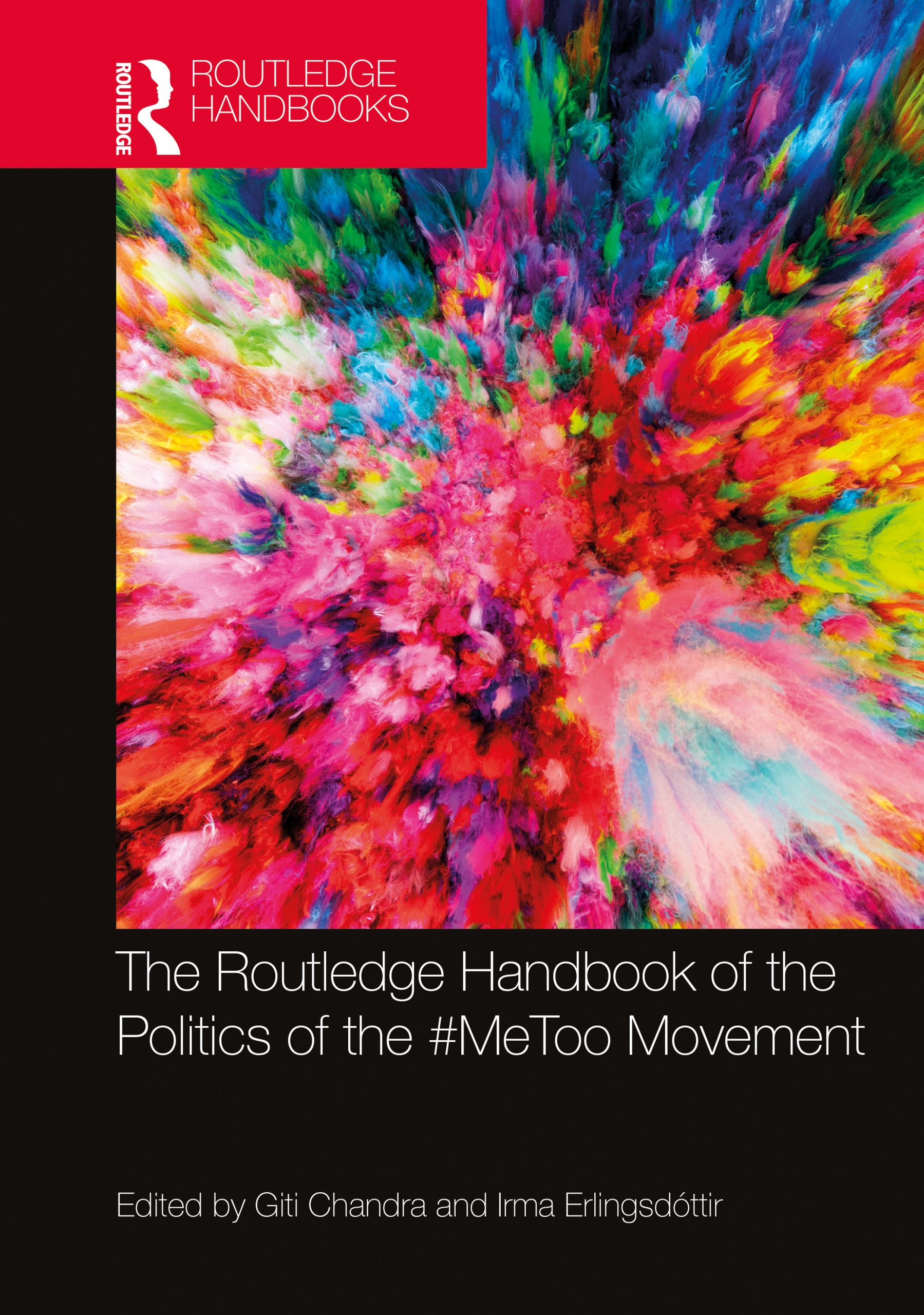
The Routledge Handbook of the Politics of The #MeToo Movement
The Routledge Handbook of the Politics of the #MeToo Movement is edited by Irma Erlingsdóttir, Director of EDDA and Associate Professor at the University of Iceland, and Giti Chandra, Research Specialist at the Gender Equality Studies and Training Programme at the University of Iceland. The book was published in November 2020.
Since the MeToo hashtag went viral in 2017, the movement has burgeoned across social media, moving beyond Twitter and into living rooms and courtrooms. It has spread unevenly across the globe, with some countries and societies more impacted than others, and interacted with existing feminist movements, struggles, and resistances.
This interdisciplinary handbook identifies thematic and theoretical areas that require attention and interrogation, inviting the reader to make connections between the ways in which the #MeToo movement has panned out in different parts of the world, seeing it in the context of the many feminist and gendered struggles already in place, as well as the solidarities with similar movements across countries and cultures.
With contributions from gender experts spanning a wide range of disciplines including political science, history, sociology, law, literature, and philosophy, this groundbreaking book will have contemporary relevance for scholars, feminists, gender researchers, and policy-makers across the globe.
Further information is available on the Routledge website.
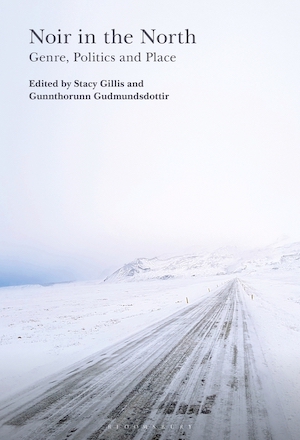
Noir in the North
Genre, Politics and Place
What is often termed ‘Nordic Noir’ has dominated detective fiction, film and television internationally for over two decades. This volume, edited by Gunnþórunn Guðmundsdóttir Professor at the University of Iceland, investigates the parameters of this genre, both historically and geographically.
Divided into four sections – Gender and Sexuality, Space and Place, Politics and Crime, and Genre and Genealogy – Noir in the North challenges the traditional critical histories of noir by investigating how it functions transnationally beyond the geographical borders of Scandinavia.
The volume is published by Bloomsbury. Further information is available on Bloomsbury’s website.
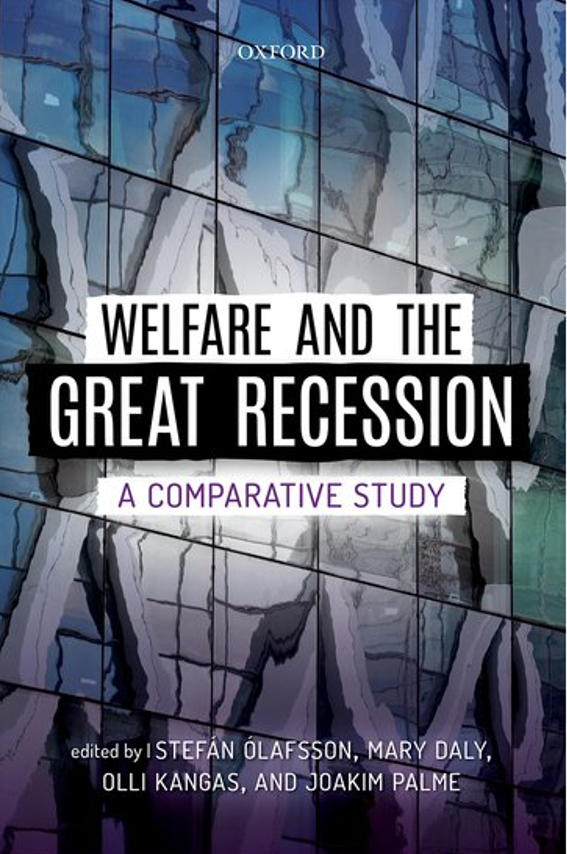
Welfare and the Great Recession
Welfare and the Great Recession: A Comparative Study is edited by EDDA researcher Stefán Ólafsson along with Mary Daly, Olli Kangas, and Joakim Palme and published by Oxford University Press and published in 2019. The edited volume focuses on the consequences of the European financial crisis on welfare and how the burdens of the recession differ between countries, socio-economic groups, and within countries. Furthermore, the book offers new evidence demonstrating that when it comes to sheltering populations from serious economic contraction, the importance of the welfare state and government policies is significant. Welfare and the Great Recession is divided into two parts: first, Comparative Profiles, Theories, and Policies, and second, Country Case Studies of Greece, Spain, Ireland, Iceland, Finland, UK, Denmark, Norway, and Sweden. It uses comparisons of thirty countries with an in-depth study of the nine countries to offer various lessons from the experience of the financial crisis in Europe. It reflects on welfare futures in a globalized crisis-prone environment. With a focus on household level welfare consequences, this edited volume relates financial hardship to institutional characteristics such as welfare regimes, currency regimes, socio-political patterns, affluence levels, public debt, and policy reactions to periods of crisis. The study takes into account stimulus versus austerity, the degree of social protection emphasis, the commitment to redistribution, and the significance of activism.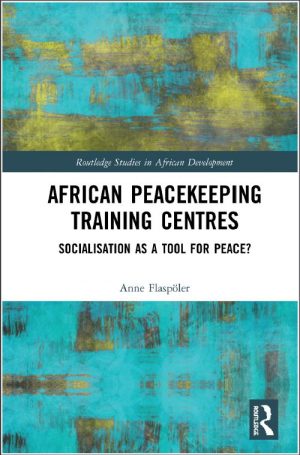
African Peacekeeping Training Centres
Socialisation as a Tool for Peace
The book by EDDA Researcher Anne Flaspöler, African Peacekeeping Training Centres: Socialisation as a Tool for Peace? is published by Routledge in 2018. The publication was supported by the EDDA Center and the United Nations University Gender Studies and Training Programme. The book explores the crucial role of peacekeeping training centers in preparing peacekeepers for their deployment. It provides an in-depth analysis of peacekeeping training in Africa, raising questions about the expectations attached to these training efforts and their impact. The focus is on training content and methods, the potential of peacekeeping training centres as sites for socialisation and their efforts to change and shape peacekeepers’ behaviour by diffusing international norms. The book, thus, touches on a range of dynamics that come into play in these training centres, the interlinks between doctrine and action, the “international” and the “African,” as well as universality and particularity. The book’s analysis is based on two contrasting case studies, selected to show the spectrum of training centres operating in Africa, namely the Kofi Annan International Peacekeeping Training Centre in Accra, Ghana and the African Centre for the Constructive Resolution of Disputes in Durban, South Africa.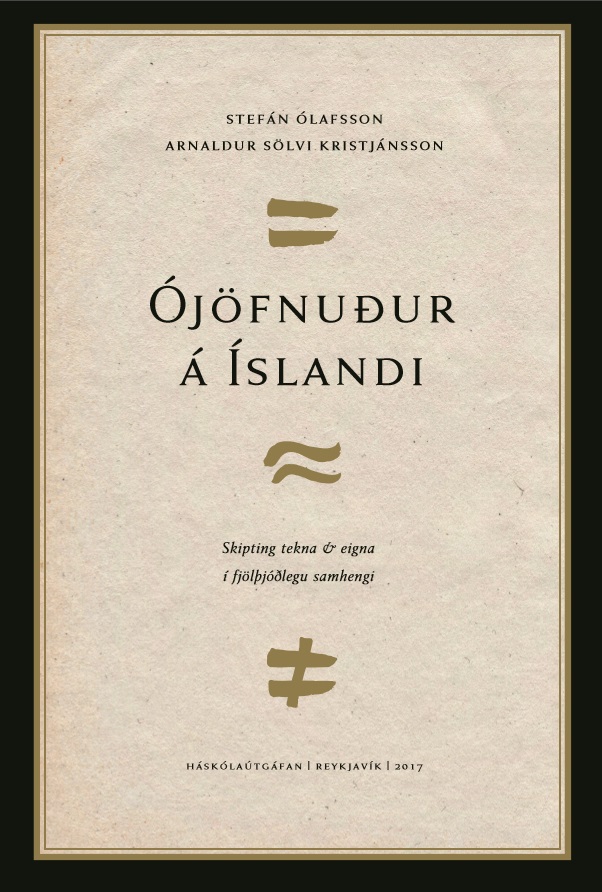
Inequality in iceland
Distribution of Income and Wealth in an International Context
Ójöfnuður á Íslandi: Skipting tekna og eigna í fjölþjóðlegu samhengi [Inequality in Iceland: Distribution of Income and Wealth in an International Context] is published by the University of Iceland Press in cooperation with the EDDA center. The book covers the period from 1927 to in 2017, the year of its publication. It shows that inequality was quite pronounced before the Second World War. From the 1940s onward, the distribution of both income and wealth became much more equal. For about half a century, Iceland, along with the other Nordic countries, probably had the world’s highest level of equality. This age of equality was a period of extensive economic growth, rapid modernization of society and the economy, improved standards of living and the build-up of a Nordic-style welfare state. Financial incomes increased rapidly from the late 1990s to 2007, but flowed primarily to the top income groups. The added impact of a shifted tax burden from higher to lower and middle incomes, increased inequality. The result was a greater increase in income inequality than previously seen in any other Western country since the mid-1950s. The financial collapse of 2008 then reversed this development, with Iceland once again moving towards more equality. The last three years have seen signs of a renewed shift to increased inequality. The authors provide international comparisons of top-income shares and other measures of income and wealth distributions, including data from Thomas Piketty and Anthony B. Atkinson and their colleagues, the OECD and Eurostat. The period from 1992 to 2015 is analysed and various drivers of equality and inequality are assessed and weighted using advanced statistical methods. Inequality in Iceland is a book about the fundamental forces that shaped Icelandic society from the early 20th century to the early 21st century, politics and the evolving standards of living of the population.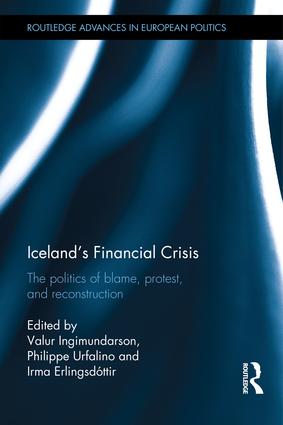
Iceland’s Financial Crisis
The Politics of Blame, Protest, and Reconstruction
Iceland’s Financial Crisis: The Politics of Blame, Protest, and Reconstruction is edited by Valur Ingimundarson, Philippe Urfalino, and Irma Erlingsdóttir and published by Routledge in 2016. The work originated in an EDDA-sponsored transnational collaborative research project and the Center’s international conference In/Equalities, Democracy, and the Politics of Transition. The edited volume deals with the political, economic, social and legal responses to the collapse of the Icelandic financial system in 2008. Interdisciplinary, with contributions from historians, economists, sociologists, legal scholars, political scientists, and philosophers, the book also compares and contrasts the Icelandic experience with other national and global crises. It examines the economic magnitude of the crisis, the social and political responses, and the transitional justice mechanisms used to deal with it. It studies both backward-looking elements, including a societal and legal reckoning—which included the indictment of a prime minister and jailing of leading bankers for their part in the financial crisis—and forward-looking features, such as an attempt to rewrite the Icelandic constitution. Throughout, it underscores the contemporary relevance of the Icelandic case. While the Icelandic economic recovery has been much quicker than expected, it shows that public faith in political elites has not been restored. The manuscript is divided into three parts: the first section focuses on economic aspects. It puts the Icelandic financial crisis into a historical international framework, analyses the relationship between political and business interests in Iceland, and explores the boom and bust cycles of Iceland’s economy. The second section engages the political and societal responses to the banking collapse, with emphasis on the role of protest movements, on the restorative and retributive mechanisms used to deal with financial crash, and on questions of political practices and accountability in Iceland. The third part is a case study on the constitutional-writing process in Iceland, which was an attempt to achieve “democratic renewal” and to restore political legitimacy after a societal trauma.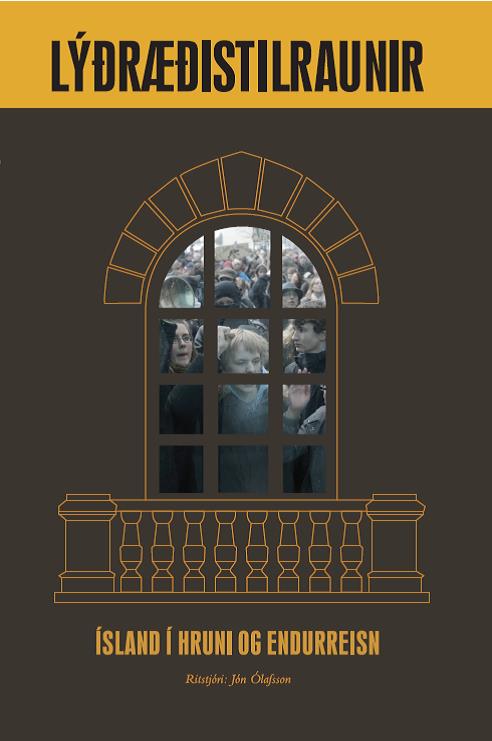
Democratic Experiments
Lýðræðistilraunir: Ísland í hruni og endurreisn [Democratic Experiments: Iceland in Crisis and Recovery] is edited by Jón Ólafsson and published by EDDA, in cooperation with University of Iceland Press and with the support of Bifröst University, in 2014. The aftermath of Iceland’s financial crash in 2008 was characterized by loud demands for new approaches in politics and more public involvement in policy and decision-making. Grassroots activity increased, and in the eyes of many citizens it was vital for Icelandic society to go through democratic renewal in order to respond to and draw necessary lessons from the crisis. National forums were convened; a Constituent Assembly was elected and the City of Reykjavik experimented with participatory budgeting, to name a few innovations that resulted from the crisis – directly and indirectly.